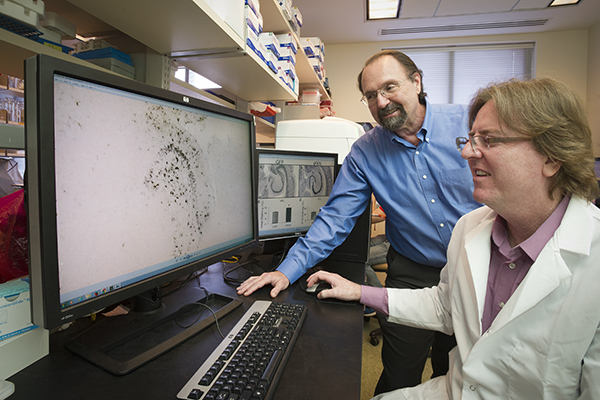New dementia drug discovery efforts get underway this month at the University of South Florida, Tampa, Fla., thanks to £875,000 funding (approximately $1.2 million) from the Dementia Consortium. The U.S. team of academics will work with drug development experts at UK-based MRC Technology, to target the immune system in a bid to halt nerve cell damage.
The investment comes as part of the £4 million Dementia Consortium – a global partnership between Alzheimer’s Research UK, MRC Technology and the pharmaceutical companies Abbvie, Astex, Eisai and Lilly. By uniting expertise, the Consortium is bridging the gap between academic research and the pharmaceutical industry in the search for new drugs to slow neurodegenerative diseases. The Consortium’s project with the University of South Florida marks their first contract for collaboration with an American University.
The link between the immune system and neurodegeneration is the focus of intense investigation, and a number of drug discovery efforts aimed at reducing inflammation have got underway recently. In this collaborative project, Dr. David Morgan and Dr. Kevin Nash of the USF Health Byrd Alzheimer’s Institute, University of South Florida, will explore the role of immune system regulator, fractalkine, in neurodegeneration. Their previous work in animal models of Alzheimer’s disease indicated a neuroprotective role for the protein, with increased levels of fractalkine dampening inflammation, halting nerve cell death and reducing tau deposits. The team observed similar benefits in mouse models of Parkinson’s, suggesting that fractalkine receptor agonism could be a treatment approach for a number of neurodegenerative diseases.

David Morgan, PhD, CEO of the USF Health Byrd Alzheimer’s Institute and Distinguished University Health Professor (left) and Kevin Nash, PhD, assistant professor of molecular pharmacology and physiology, with an image of neurons expressing fractalkine, an immune system regulator with a neuroprotective effect.
As no known small molecule agonists of the fractalkine receptor exist, the Dementia Consortium funding will couple Dr Morgan’s expertise in neurodegeneration and in vivo validation techniques with the MRC Technology’s extensive screening capabilities and medicinal chemistry programmes.
Talking about the new funding, Dr. David Morgan, CEO of the USF Health Byrd Alzheimer’s Institute, said:
“We’ve been exploring the role of fractalkine in Alzheimer’s and Parkinson’s disease for many years now, highlighting a neuroprotective role for the protein. Thanks to funding from the Dementia Consortium, we are now able to shift our focus from pathway characterization to drug development. We’re particularly excited that this approach could have an impact across a number of different neurodegenerative diseases and look forward to coupling our disease knowledge with drug discovery experts in the UK, to help accelerate progress towards treatments.”
Dr. Simon Ridley, Director of Research at Alzheimer’s Research UK, said:
“Dementia is our greatest medical challenge, with 46 million people worldwide living with the condition. The Dementia Consortium is one of a range of initiatives by Alzheimer’s Research UK to accelerate the ‘bench to bedside’ journey, ensuring that academic insights are translated into the clinic as rapidly as possible. The high attrition rate in drug discovery means we must invest heavily in promising early stage development projects and the Dementia Consortium provides a unique vehicle for this investment, uniting expertise across the academic, technology transfer and pharmaceutical sectors.”
Dr. Justin Bryans, Director, Drug Discovery at MRC Technology, said:
“Scientists are increasingly looking at the body’s own immune system to fight some of the most challenging diseases of our time. This project will progress promising findings that fractalkine could reduce inflammation and cell death. Drug discovery expertise in our laboratories will now be applied to find small molecules to stimulate the fractalkine receptor so we can move a step closer to finding a new treatment for people with dementia.”
On forming new partnerships, Valerie McDevitt, Associate Vice President for Technology Transfer & Business Partnerships at the University of South Florida, said:
“The University of South Florida places emphasis on building new relationships like this one to help bridge the gap between academic research and industry. Our collaboration with the Dementia Consortium provides an opportunity to positively impact the treatment of neurodegenerative diseases and aligns with our university mission to serve as a highly effective major economic engine.”
# # #
For further information, or to speak with Dr. Morgan or Dr. Ridley, please contact Emma O’Brien, Science Communications Officer at Alzheimer’s Research UK on 0300 111 5 666, mobile or email press@alzheimersresearchuk.org.

